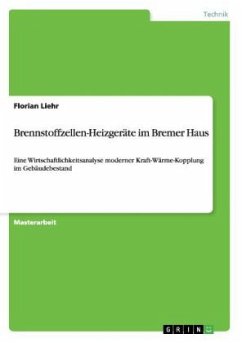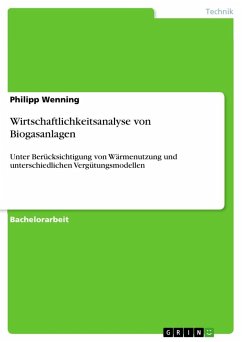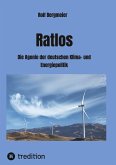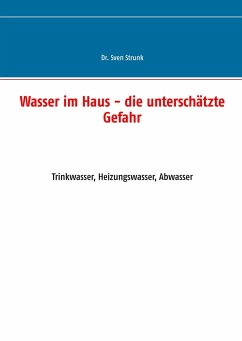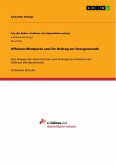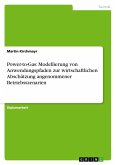Masterarbeit aus dem Jahr 2012 im Fachbereich Energiewissenschaften, Note: 1,8, Universität Bremen (Institut für Geographie), Sprache: Deutsch, Abstract: Das Brennstoffzellen-Heizgerät wird generell im Kontext globaler Erwärmung, steigen-den Energiekosten und zur Neige gehenden Energieträgern als dezentrale, effiziente und emissionsarme Technik beschrieben. Es stellt sich die Frage, ob dieser Fortschritt in Bremer Häusern wirtschaftlich einsetzbar ist. Die Beurteilung der Wirtschaftlichkeit der Brennstoffzellen-Heizgeräte im Bremer Haus stellt sich allerdings aktuell als schwierig heraus. Einflussfaktoren, wie Gerätepreis und zukünftige Vergütungen sind noch sehr unsicher, da sich die Produktion der Geräte noch im Entwicklungsstatus und in der Testphase befindet. Dennoch wird hier eine Wirtschaftlichkeitsanalyse auf Basis der Annuitätenmethode durchgeführt, die untersucht, ob eine alternative Kraft-Wärme-Kopplung auf Brennstoffzellenbasis zur Wärme- und Stromversorgung, im Vergleich zur konventionellen Technik, eine wirtschaftlich vorteilhafte Lösung ist. Von zentraler Be-deutung stellen sich hierbei die Anschaffungskosten und die Nutzungs- und Einspeise-vergütung des selbstproduzierten Stroms heraus. Großes Potenzial steckt bei Bestands-gebäuden immer in Sanierungsmaßnahmen, die zur Reduktion des Heizwärmebedarfs führen und damit die Wirtschaftlichkeit positiv beeinflussen.
The fuel heating appliance is generally described in the context of global warming, ris-ing energy costs and depletion of energy sources as a decentralized, efficient and low-emission technology. This raises the question whether this progress can be used eco-nomically in Bremer Houses. The assessment of the profitability of fuel cell heating ap-pliances in the Bremer House currently turns out to be difficult. Factors involved, such as equipment price and future payments are still very uncertain because the manufac-ture of the devices are still under development status and in the testphase. Neverthe-less, a profitability analysis based on the annuity method is performed here which in-vestigates whether an alternative combined heat and power based on fuel cells for heat and power compared to conventional technology is an economically advanta-geous solution. Of central significance are the costs and the payments for the self-produced electricity. Great potential for existing buildings lies still in rehabilitation lead-ing to the reduction of heat demand and thus affect the profitability positively.
Hinweis: Dieser Artikel kann nur an eine deutsche Lieferadresse ausgeliefert werden.
The fuel heating appliance is generally described in the context of global warming, ris-ing energy costs and depletion of energy sources as a decentralized, efficient and low-emission technology. This raises the question whether this progress can be used eco-nomically in Bremer Houses. The assessment of the profitability of fuel cell heating ap-pliances in the Bremer House currently turns out to be difficult. Factors involved, such as equipment price and future payments are still very uncertain because the manufac-ture of the devices are still under development status and in the testphase. Neverthe-less, a profitability analysis based on the annuity method is performed here which in-vestigates whether an alternative combined heat and power based on fuel cells for heat and power compared to conventional technology is an economically advanta-geous solution. Of central significance are the costs and the payments for the self-produced electricity. Great potential for existing buildings lies still in rehabilitation lead-ing to the reduction of heat demand and thus affect the profitability positively.
Hinweis: Dieser Artikel kann nur an eine deutsche Lieferadresse ausgeliefert werden.

